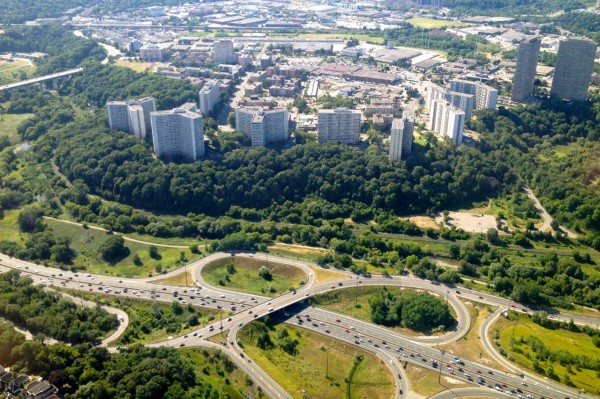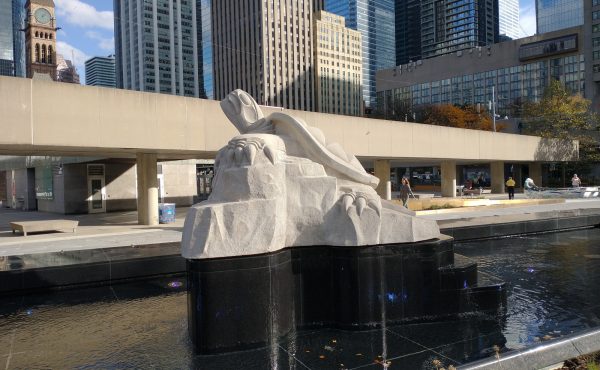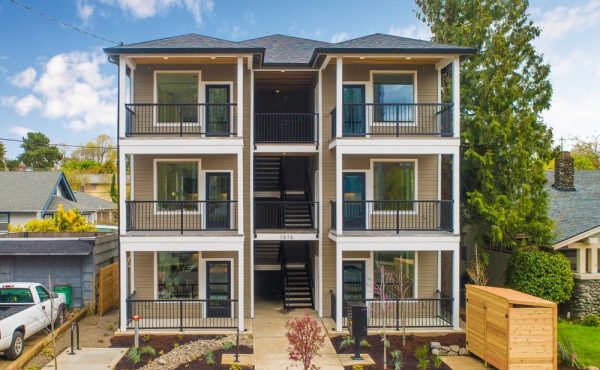The circus of Rob Ford has gained international media attention and been fodder for late night comedians. It does represent a real crisis of governance in Toronto, a dysfunctional mayor who held – and maybe still holds – city council and the business of government hostage.
There are deeper issues at play in all this, longer term social and economic problems which – while not generating the headlines of lewd statements and admitted crack-use – seriously warrant attention. These are issues that have ramifications beyond Rob Ford, that predate and will (almost certainly) outlast his mayoralty. This is the reality of a polarized city, of a Toronto that is enjoying growth and prosperity but, at the same time, consists of many – in large part immigrants and visible minorities – who are left behind, struggling with poverty and social exclusion.
In many cases, these people live in substandard housing, tower-blocks in Toronto’s inner-suburbs, in some cases facing issues in their neighbourhoods of violence and drug addiction.
The Fifth Estate expose on Rob Ford’s drug use and purchasing, as well as connections to violent gangs, highlighted the Dixon Tower blocks near the notorious “crack house” location of the mayor’s publicly released photograph. Though, for all the focus on the mayor’s wrongdoings – and this does rightly point to someone unfit for office – there is a deeper issue in the neighbourhood of the crack-house and tower blocks, of poverty, violence, and drug use.
A study by Emily Paradis, of the University of Toronto, funded by the Homelessness Partnering Strategy, draws on a survey by the United Way Toronto of more than 1,500 parents living in rental tower blocks in low-income neighbourhoods in the City of Toronto. Those surveyed were from low income neighbourhoods in Toronto’s inner suburbs as well as from Parkdale which was in pre-amalgamation Toronto.
The study found that almost 90% of families were faced with unaffordable, unsafe, overcrowded, and/or insecure residential accommodations. An infographic summarizing the findings shows that only 11% had adequate housing with 56% having inadequate housing (problems in one or two identified areas), 30% were at risk of homelessness (problems in three or four identified areas) and 3% were at critical risk of homelessness (problems in five or six areas).
Of those sampled, more than 80 percent were immigrants or from “racialized” groups in comparison to half this rate for the City of Toronto as a whole. Furthermore, 37 percent of families were single-parent households as opposed to 21% city-wide. (More details on the study, and the methodology used, are available here.)
Low-income residents of suburban highrises also face issues of mobility, in particular lack of access to mass transit or amenities such as grocery stores, education, and healthcare services. As low-income people often do not own a car, the lack of walkable neighbourhoods or mass transit are serious detriments.
Rahul Bhardwaj, president and CEO of the Toronto Community Foundation, identified the lack of adequate public transit infrastructure as a problem in Toronto, especially in the Priority Neighbourhoods (areas identified as low income and facing social and economic stresses) including neighbourhoods in Finch, Scarborough, and North Etobicoke.
Speaking to the Toronto Star, Bhardwaj stated that, “The circumstances exacerbate the situation of low-income and extra low-income residents. Without adequate transit, they can’t get to work, to shops, to the doctor and so on. Transit has become a crucible of trust in the public mind.”
The Toronto of towering new condos, of downtown coffee shops and trendy restaurants and stores, is far removed from the Toronto of these low-income, suburban, and largely visible minority residents. A “plain-talking” politician who rails against downtown elites, against “slick talking lawyers”, “consultants”, and recipients of “research grants” appeals to those who feel left behind.
A similar divide – and alienation – exists in New York City, with an affluent centre – lower Manhattan and some adjacent neighbourhoods in Brooklyn – alongside outer boroughs which feel left out, where there is concern about rising rents, where income is low and job security precarious. It was these concerns which fuelled the campaign of the ultimately victorious Bill DeBlasio, who emphasized a “two cities” theme in his campaign and the need to govern for all five boroughs.
Economic and social inequality was a central theme of DeBlasio’s mayoral campaign.
These concerns, about suburban alienation, about inequality, are concerns that need to be seriously addressed in Toronto. While Rob Ford has not concretely tackled the issues concerning the inner-suburban poor, he has politically benefitted from their discontent.
There are positive signs that these issues are gaining greater traction however, including the series of planning roundtables – focussed on the suburbs – being held by Toronto’s Chief Planner Jennifer Keesmaat. As well, the Suburban Revolution conference at York University, which I attended and presented at, provided an opportunity to shed light on an often neglected area of urban studies. As well the interactive documentary, Highrise: Out My Window, highlights the stories of tower block residents around the world, including in Toronto.
Toronto ultimately needs a public discourse – and public officials including a new mayor – focussed on seriously addressing the concerns of poverty and alienation in the inner-suburbs while also prioritizing the economic development and growth of an emerging global city. Prosperity is important, but it must benefit everyone. Ultimately, the focus must be on governing for all of Toronto, not neglecting parts of it, or – worse yet – pitting different elements against each other.
Hassan Arif (@hassannb) is a PhD candidate in Sociology at the University of New Brunswick in Fredericton where he is specializing in urban sociology and local government. He is also a columnist, having published for the Telegraph Journal in Saint John, the Daily Gleaner in Fredericton, as well as the Huffington Post, and Sustainable Cities Collective. He has also contributed to Insight articles for the University of Toronto’s Martin Prosperity Institute and has published a paper on economic development in smaller jurisdictions for the Canadian-American Center at the University of Maine.
Hassan is active in his community, being involved with Transition Fredericton, a group promoting environmental sustainability in the city. Hassan has done consultation work in the areas of transportation policy and legal aid reform with the Province of New Brunswick.
Photo by Shawn Micallef





6 comments
A large portion of inequality is the result of lack of opportunity. A lot of the jobs that were tolerant of new immigrants language skills moved out of the city into the 905 (now they are moving out of the country, but that is another issue) Rahul Bhardwaj et al. are missing this point and really need to look the stats. (see attachment 3, page 50 here….. http://www.toronto.ca/legdocs/2005/agendas/council/cc051026/pofedp2rpt/cl001.pdf ). The suburbs do not need public transit to get across the city when their jobs are increasingly outside of the city. They especially don’t need the added burden of funding paying for it.
By having supported Rob Ford, Toronto’s suburbanites behaved rationally, choosing a do nothing mayor over a do the wrong thing mayor. Until Toronto fixes its tax climate towards non residential development, I suspect that they will continue to vote for those whom propose to do the least harm.
Glen, you must be the most boring person alive. Every single issue and argument for you is brought back to business tax rates.
You are a broken record.
@Glen
If those jobs are now moving out of the country, doesn’t it imply that fixing Toronto’s non-residential (including multi-unit residential) tax rates isn’t going to do much good? Nevertheless, a phased-in reduction of these rates been part of Council policy for the past decade. Doesn’t Rob Ford’s obsession with freezing residential tax rates (and insistence on unneeded subways) conflict with such an attempt to rebalance rates, which would put him squarely in the do-the-wrong-thing category of mayors?
Separately, why should the location of jobs north of Steeles vs. south of Steeles translate into not building public transit? All it would seem to imply to me is that we should also be improving cross-border services to better connect the 416 with the 905.
@John,
It still is imperative for the city to respond to this issue. While the city has a certain amount of employment that is attached to the core, mainly the F.I.R.E. sectors, there is a risk that as continued expansion outside of the core could create enough agglomeration as to heavily impact it. There is also in inescapable reality that when a government is restrained from running deficits or surpluses that when one sector pays less the other must pay more. What this means is that in Toronto, the fact that the residential sector pays less, it is implicit that they are subsidized by the sectors that pay more. Growth in the residential sector needs offsetting growth in the non residential sector to offset the shortfall in revenue over expenses. In this regard, Toronto is going through something akin to an inverse bubble. There is going to come a time, IMO soon, that residential taxes are going to have to rise much faster than the cost to provide new or existing services. While the city has in place a program to partially re-balance the rates, it is inadequate and glacial. I do agree with you that Rob Fords love affair with subways is misplaced and that residential tax freezes are the opposite of what is needed. Both will hamper the necessary re-balancing. The only positive is that a residential tax freeze implies a non-residential tax freeze as well. While on paper the re-balancing is stalled, in reality the tax burden on the over taxes sectors does not increase.
WRT to transit, during the time when the city was loosing jobs and the 905 region created over 800,000 jobs, congestion in the city and region got worse. Yet the solutions being proposed was to increase PT within the city. With the cost of transit expansion falling heavily on those whom will still not be able to benefit. The only common sense heard on this issue has come from the transit panel, which has acknowledged that transit expansion should serve employment areas. Furthermore they have acknowledged that employment projections for the city of Toronto are entirely unrealistic.
You are a credit to the University of New Brunswick in Fredericton, and Sociology in general – sadly that isn’t saying much. Without a doubt, your alienated friends would rather spend an hour with Ford than 10 minutes with Jennifer Keesmaat, Rahul Bhardwaj or yourself. Keep fighting the good fight – or what ever it is you think you are doing.
Thanks for the kind words Ted, really appreciate it 🙂 I don’t know if I’d put myself in the same league as Keesmaat and Bhardwaj, but do appreciate the kind words.